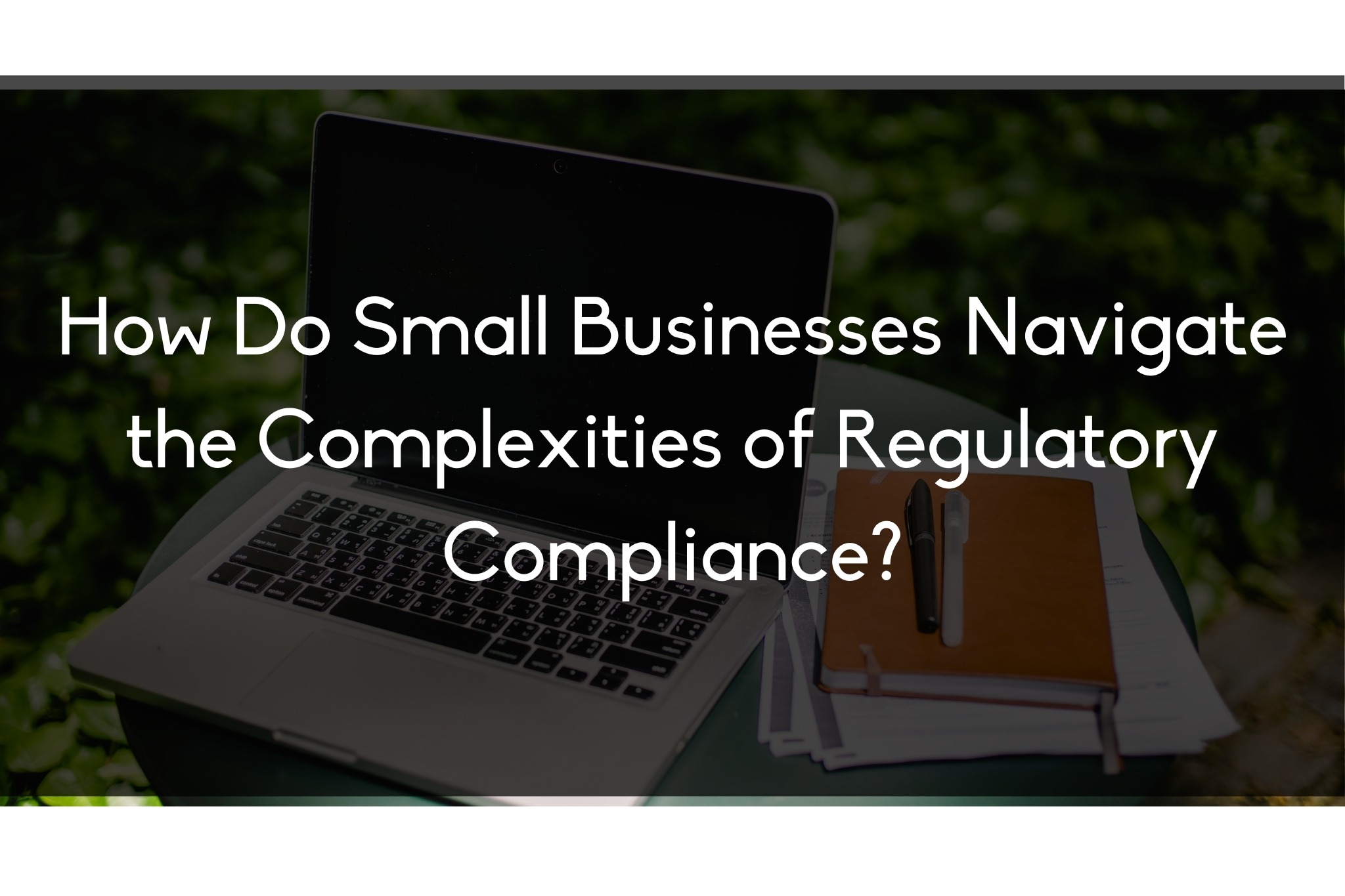
Running a small business is like captaining a ship. You have a destination in mind, but there are countless challenges along the way—market competition, customer satisfaction, and financial management. However, one of the most daunting obstacles many small business owners face is regulatory compliance. Navigating the sea of rules, regulations, and legal requirements can be overwhelming, especially when your focus should be on growing your business. But, compliance is non-negotiable. The question is: how do small businesses successfully steer through these murky waters?
The key to mastering regulatory compliance lies in understanding the rules that apply to your business, staying informed of any changes, and implementing strategies that ensure you meet all requirements without disrupting your operations. By breaking down the complexities into manageable steps, small businesses can stay compliant while focusing on what truly matters—serving their customers and expanding their reach.
In this article, we’ll explore how small businesses can effectively navigate the complexities of regulatory compliance. We’ll cover the importance of understanding the regulations that apply to your business, practical steps for staying compliant, and how to create a compliance strategy that works for you. Whether you’re just starting out or have been in business for years, these insights will help you stay on the right side of the law while keeping your business on the path to success.
Regulatory compliance isn’t a one-size-fits-all situation. The rules that apply to your business depend on various factors, including your industry, location, and the size of your business. For instance, a small restaurant will face different regulations compared to a tech startup. Therefore, the first step in navigating regulatory compliance is understanding the specific requirements that apply to your business.
Start by identifying the core regulations in your industry. These could include health and safety standards, environmental laws, labor laws, and data protection regulations. The U.S. Small Business Administration (SBA) is an excellent resource for understanding federal requirements, while your state and local governments will have additional regulations.
Once you have a clear picture of the regulations that apply to your business, it’s crucial to stay updated. Regulatory landscapes are constantly evolving, and what was compliant last year might not be today. Regularly check for updates from relevant regulatory bodies, subscribe to industry newsletters, and consider joining a professional association that keeps its members informed about changes in compliance.
Maintaining compliance shouldn’t come at the cost of your business’s growth. The key is to integrate compliance into your daily operations rather than treating it as a separate, occasional task. This approach not only ensures ongoing compliance but also minimizes the risk of non-compliance penalties, which can be costly and damaging to your reputation.
One effective strategy is to develop a compliance calendar. This tool helps you track important deadlines, such as filing taxes, renewing licenses, and submitting reports. By setting reminders and allocating time to these tasks, you can avoid last-minute scrambles that can lead to mistakes.
Another important step is to train your team on compliance-related issues. Whether it’s workplace safety, data protection, or ethical practices, your employees should be aware of the regulations that affect their roles. Regular training sessions can help reinforce this knowledge and keep compliance top of mind.
Additionally, consider investing in compliance management software. These tools can automate many of the tasks associated with compliance, such as tracking changes in regulations, managing documentation, and generating reports. This not only reduces the burden on you and your team but also ensures that nothing falls through the cracks.
Every business is unique, and so should be your compliance strategy. Rather than trying to adopt a generic approach, tailor your strategy to fit the specific needs and circumstances of your business.
Start by conducting a compliance audit. This involves reviewing your current practices to identify any gaps or areas where you might be at risk of non-compliance. An audit will give you a clear understanding of where your business stands and what needs to be done to achieve full compliance.
Next, prioritize your compliance efforts. Not all regulations carry the same level of risk, so it’s important to focus on the most critical areas first. For example, non-compliance with tax regulations or employee safety standards can result in severe penalties, so these should be at the top of your list.
Once you’ve identified your priorities, develop a plan to address them. This might involve updating your policies, implementing new procedures, or investing in training or technology. Whatever your approach, make sure it’s practical and sustainable. The goal is to create a compliance framework that supports your business rather than hinders it.
Finally, don’t forget to monitor and review your compliance efforts regularly. Compliance isn’t a one-time task—it’s an ongoing process. Regular reviews will help you identify any new risks or areas that need improvement, allowing you to make adjustments before they become major issues.
You don’t have to navigate the complexities of regulatory compliance alone. There are numerous resources available to help small businesses stay compliant, from government agencies to industry associations and professional services.
The SBA, for example, offers a wealth of information and resources for small businesses, including guides on regulatory compliance. Similarly, many industry associations provide compliance support to their members, such as updates on regulatory changes, training programs, and access to legal experts.
Another valuable resource is legal counsel. While hiring a lawyer may seem like an expense you can’t afford, the reality is that professional legal advice can save you from costly mistakes in the long run. A lawyer with experience in your industry can help you understand the regulations that apply to your business, advise you on best practices, and represent you in the event of a compliance issue.
Lastly, don’t overlook the power of networking. Connecting with other small business owners in your industry can provide valuable insights into how they handle compliance. Sharing experiences and strategies can help you navigate challenges and avoid common pitfalls.
It’s easy to view regulatory compliance as a burden—just another set of hoops to jump through. But in reality, compliance can be a significant asset to your business. By staying compliant, you not only avoid fines and legal trouble but also build trust with your customers, employees, and partners.
Think of compliance as a form of insurance. It protects your business from potential risks and ensures you can continue operating smoothly, even as regulations change. Moreover, a reputation for compliance can set you apart from competitors, making your business more attractive to customers and investors alike.
In conclusion, while the complexities of regulatory compliance can be challenging, they’re not insurmountable. By understanding the regulations that apply to your business, integrating compliance into your daily operations, creating a tailored strategy, and leveraging external resources, you can navigate the regulatory landscape with confidence. And in doing so, you’ll not only protect your business but also position it for long-term success.
